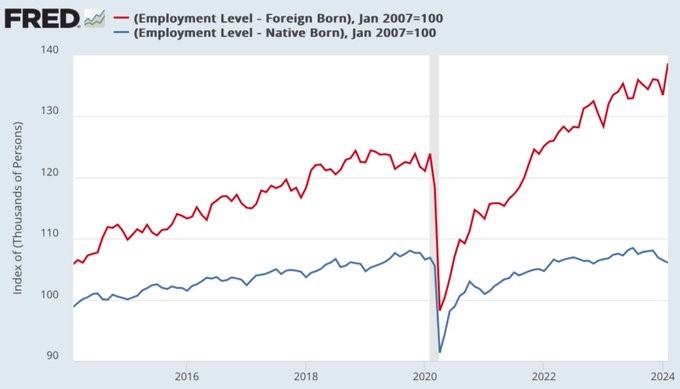Another outcome of Progressive-Democrat President Joe Biden’s disdain for our national borders and for actually vetting who comes into our nation is this. Notice, too, that the graph isn’t some tenuously done aggregation of data from questionable sources; it’s a FRED (Federal Reserve Economic Data, compiled by the Federal Reserve Bank of St. Louis) graph.
In just February, 1.2 million immigrants (legal and illegal) gained a job. Meanwhile, 500k native-born Americans LOST their job.
Since Covid, native-born workers have actually LOST 2 million jobs. All of the net job gains are immigrants.

